“The first time we played live in front of 6,000 people at the Universal Ampitheatre in Los Angeles,” Ava Cherry tells Pennyblackmusic,” I said to him, ‘David, I have never played in front of so many people. I am afraid. I don’t know if I can do it. I am very nervous,’ and he said, “You can do it. You are going to do it. You can do anything you want to do.” I rehearsed hard, and it was the most beautiful night that first night at the Universal Ampitheatre, and we were split really far apart. I was on the left side of the stage, and Luther Vandross and someone else were on the right side, and David was in the middle of the stage and the spotlight was on him and he was singing something and he takes the mic out of the stand and starts coming over to me, and he puts the mic in between us so that we are singing together, and all of a sudden I felt so incredible that we were doing this. It was like he was saying, ‘I am going to help you make that transition to being used to an audience.’,and I did. He made me feel really confident, and after that I was like, ‘Yay! Are there going to be 6, 000 people there?’” Ava Cherry was one of David Bowie’s most important musical collaborators when he was at his creative peak in the 1970s, as well as being his romantic partner. A muse to him, her influence and background in soul music enflamed for him the inspiration for his classic ninth album, ‘Young Americans’ (1975). She took him to soul clubs, introduced him to the Philadelphia studio Sigma Studios where much of it was recorded, and provided backing vocals on many of its tracks, including the hit single ‘Fame’, which also featured and was co-written by John Lennon. An often under-acknowledged figure in David Bowie biographies, Cherry is publishing her own memoir, ‘All That Glitters’ (co- written with Pennyblackmusic’s Lisa Torem), in January. It tells of her working class upbringing with supportive parents in Chicago, and her early career ss a model in the Playboy mansion where she lived and then in New York where she met Bowie. After he disappeared from her life overnight, she went to Europe to find him. She toured as a backing vocalist with him, and they worked on ‘Young Americans’ and her own eventually abandoned ‘new wave’ project Ava and the Astronettes which he produced, but the strain of his cocaine addiction and his management company Mainman leaving him financially destitute led to their break-up. Ava subsequently went on to tour with Luther Vandross, and to record several solo albums, including ‘Ripe!!!’ (1980) which was produced by Curtis Mayfield and ‘Streetcar Named Desire’ (1982) which featured tracks written by Mark Isham. Pennyblackmusic spoke to Ava Cherry about ‘All That Glitters’. PB: Why have you decided to publish and write ‘All That Glitters’ now? AC: People have been saying to me for at least five years now, “You should write a book,” and so a couple of years ago Lisa and I started talking about it and working on it. I feel a lot of people don’t really know Ava Cherry, even people from that era. They appreciated people like Bowie. He was a great, great artist, but he also had people around him that inspired him and enthused him and I was one of those people. PB: You say in ‘All That Glitters’ that “the ‘Young Americans’ album would not have happened without me and my influence.” What do you see as being the main ways in which you influenced it? AC: It would have taken longer to fall into place without me. David admired Marvin Gaye and a lot of other soul artists, and he also admired people like Frank Sinatra, which was why he started wearing suits and hats at the time. David was a chameleon. He would say, “I want to be this right now.” We were in London at the time, and he was like, “Oh man! I just want to do this soul vibe. How would we begin?” And then I told him how where we should start from and I said to him, “We should go to places like New York where there are a lot of soul musicians performing in a place which is called the Apollo,” and the minute I told him that he started researching things and reaching out to people in America to arrange that, going to the Apollo. That was the main thing. I helped to introduce him to soul music. PB: You got into modelling and started working and living in the Playboy Mansion from the age of sixteen which is very young. How did you end up there? AC: I was very mature and like a nineteen-year old when I was sixteen. My mother worked for Playboy at the time. She worked in the corporate and I was around it all the time. It was quite a natural step for me to end up working and living there. PB: You speak very fondly of Hugh Hefner who you remember with great affection. It seems to have been quite a conservative places in some ways with the girls not being forced to have sex, not allowed to bring men back or being allowed to drink much in the way of alcohol. Was that the case? AC: When I started going to the mansion, Hefner always treated me well. It was not like there was sex going on all the time. He didn’t know how young I was, but he realised I was young and not sexual. He saw that. He played a lot of backgammon and I used to sit there next to him and watch him play. He would play Warren Beatty and other famous celebrities, and I wanted to learn how to play and so I would just sit there and watch. He didn’t treat me like I was a sexual object. He was a very nice man. I never saw him get angry with anybody, but I know that he did. He never yelled at people or nothing like that. He was a very mild-mannered man. Ten or fifteen of us lived in the house and there was always something going on. It was your choice to be there. Don’t misunderstand me! Celebrities would come and they would want a party, and the girls that wanted to party would party and the girls that didn’t want to didn’t. PB: How long did you stay there? AC: About a year, a year and a half. I was modelling at the same time. I then decided that I was going to go on to New York. PB: And you met David in a club there? AC: Yeah, I did. My manager at the time was fascinated by him even before he was well known here, and he gave me the ‘Ziggy Stardust’ album. Why he gave me his album I do not know. He said, “I want you to listen to this guy David Bowie. He is really good and I think that he is going to be big,” and then I started listening to it, and I was so taken by it. I was so enchanted by the melodies and the words. ‘Moonage Daydream’ was my favourite song. PB: When you met David, it seemed to be pretty much love at first sight. AC: It was love at first sight (Laughs). We were at this party Stevie Wonder was giving, and my manager said, “You will never believe who is here. It’s David Bowie. That guy I gave you the album by” and I looked over at David and said, “I am in love” (Laughs). I was probably already in love because I had already listened to that album at least one hundred times. I just listened to it over and over again because I was into science fiction at the time and trying to understand this person who I kind of identified with, this extra terrestrial, who was on it. My manager said, “I am going to get him,” and I couldn’t breathe, and he brought him over to me (Laughs). My hair was platinum blonde at the time, and the first thing he said to me (Mimics English accent) was “Hello. I love your hair,” and I was just smitten from there. PB: You were together briefly at first and then he vanished very shortly after that, and you went off to Europe to look for him, finally finding him after nine months in Paris. AC: I am trying to say to everyone in this book, but especially to younger people in the industry, “Don’t give up on your dreams.” I am trying to say that if you really believe in yourself and you really believe in something then go for it. I was invited shortly after that to spend the summer in Monaco with a friend and I said to myself, “I am going to go to Monaco. I am going to get there. I just can’t let it go. I love him now.” I phoned my mother up, and i said, “I am going to go to Europe. Something is telling me that I have got to go,” and she said, “Really,” and I said, “Well, this friend of mine is going to send me a ticket to Monaco, and I am going to start there and then I am going to go to Paris,” and she was a little sceptical at first and I said, “I have got to do it. Please let me go.” So, I went to Monaco with just $200 in my pocket, but she knew me well enough that when I say I have got to do something. I have got to do it. I have to if my spirit tells me, so she allowed me to go, and I left and I went on an adventure (Laughs). PB: You must have been absolutely fearless. AC: I was at that point and at that age. What drove me was that I felt so much love for him by now I just had to be with him and that is all that I knew, and also I wanted to go to Europe. That was the opportunity. I thought that travelling abroad would broaden my horizons. My parents brought me up to be fearless. They brought me up to be independent. They brought me up to say how I felt and be who I am. PB: When you got to Paris and finally caught up with him, you discovered that he was married. Was that difficult to deal with? AC: It was at first because he introduced me to Angie, his wife, after the first night we made love (Laughs). We were in this hotel and the door unlocked and this woman burst in shouting, “Hello, darling!” And I was like, “Who is this?” (Laughs). I was wearing his bathrobe and she comes in and he says, “This is Ava Cherry,” and she kisses me on both cheeks, and he is like, “This is my wife, Angie.” I can't imagine the look on my face (Laughs). I had never experienced anything like this before. I was streetwise a little bit, but I was naive about most things. I was like, “You’re married?” because that was how I saw my mother and father. I wasn’t sure what to say. I just went “Oh! Hello!” and as quick as she came in she was gone in a flash. Two minutes later she was gone, saying “I am going back to London tomorrow, darling. I will talk to you later,” and that was it. So, we closed the door and I said to him, “David, how come you didn’t tell me that you were married? I really am not sure if I would have been here this morning if you had told me that,” and he said, “Well, I am sorry that I didn’t tell you but we have a very open marriage. I didn’t marry really for love, and she sleeps with whom she wants to and I sleep with whom I want to sleep with.” And by this time it was already too late. I could not go back. I accepted it but only because of the way she reacted. She acted like it was nothing that I was sleeping with her husband. PB: You created a powerful working relationship with David. There was the Ava and the Astronettes recordings which were produced by David. What kind of producer was he? AC: He understood me and he was trying to give me something different and an alternative to R & B, which is all I at that stage had experienced in production. I felt, however, I wanted to work with some black producers too, and it was something of a bone of contention. Tony Zanetta at Mainman who helped manage his career, was attracted to me, and when I first met him David saw that, and when Tony asked if he could produce something by me, David said, “No, I am producing,” and so he did that. I enjoyed some of the stuff that I did with him, but I think if somebody maybe on the soul side had helped him he might have seen another side to me. I wasn’t, however, going to argue with him. I thought that he was doing what was best for me at the time. He cared for me a lot, but he also didn’t want me to sleep with Tony Zanetta (Laughs). PB: Are you disappointed that not more was made of Ava and the Astronettes? AC: Yeah. What happened was that right in the middle of doing demos, this whole crazy mess with Mainman started when David all of a sudden discovered that his money was gone. That all crashed down at once, and David said to me, “We are going to have to stop working on this right now because I have got to deal with this issue with Mainman,” and i said, “What about the masters?” We can’t let Tony DeFries (Mainman head – Ed) keep them,” and he said, “No, no. Don’t worry! I am going to put them in a vault. He is not going to be able to touch them,” but he did get them and he took the masters which were demos and we didn’t get them back for years. PB: When you were making ‘Young Americans’, you were introduced to Yoko Ono, who has often been given bad press but you liked her. AC: I loved her. I understood why people disliked her and that was because she was a feminist. She saw women as equals. John was absolutely mesmerised by this woman. David saw it too. David and John loved each other so much and the day we were doing ‘Fame’ David was so excited about John coming he was like a little kid getting the best toys for Christmas. He was so admiring of John and they got on like a house on fire. When we were in the studio together, Yoko made this huge sushi for us for lunch. She wasn’t a nuisance and knew where to draw a line, but she knew that John loved her and respected her as an equal. I really admired her. PB You sung on ‘Fame’ but were for many years not given the credit for that. Why was that? AC: I don’t know. What happened was a misprint because my name is on every other song on that record except for ‘Fame’, which is the last song I did and I was on that singing the “fame, fame, fame” vocal. What happened was that there was a Cadillac commercial that was coming out which was using ‘Fame’ as a soundtrack, and they sent me an email and they said, “We are doing a commercial using ‘Fame’ and we are getting ready to pay you. We would like to give you a call,” and they called and said, “You’re going to make a lot of money off this commercial” Then about five days later I got another call, saying that I wasn’t going to get paid and I said, “Why?” and they said that it was because my name wasn’t printed on the back of the album, and I was like, “But I was on it.” I had no money at the time, but I put my foot down and said, “No, this isn’t going to happen.” I started talking to lawyers, and one lawyer said to me, “Even if you can’t pay me, I will take this because it is not fair. I don’t like to see this happen,” and so he took it on, and he started emailing RCA, which had released ‘Young Americans’, and they didn’t answer us for a couple of weeks, and then finally my lawyer said, “If you guys do not answer us, we are going to bring everybody that was in the studio that day in court,” and when we did that they all of a sudden changed their minds and gave me the credit and paid up. PB: You and David were one of the first high profile inter-racial couples. Was that something you were especially conscious of? AS: I was brought up to respect every race, and not to show prejudice in any way and against any colour, and even when I was in school I had white friends and they weren’t bothered either, so I had a very cool feeling about who I was. I was never made to feel when I was growing up that I was inferior in any way. I was actually very confident. When David and I got together, I never thought about it in any way. If we were going out somewhere and people were looking at us, he would hold my hand tighter or he would put his arm around me more. PB: Unfortunately you and David broke up. He was taking a lot of drugs at the time and Mainman had by then fallen apart. Do you think that clouded his judgement? AC: Oh, yes. He even said that eventually. When I first met David, he didn’t do drugs. He just smoked a little weed and drank red wine. He was a totally different personality from when he started to do coke , but we didn’t break up because he was cheating on me or because we argued all the time or we were fighting. We broke up because he was feeling trapped. He thought that he had made a lot of money, I can only imagine how he must have felt thinking that he was a millionaire and then finding that he was broke. He explained it to me. “I just can’t handle it right now and trying to look after you as well. I am not trying to hurt you,” but, of course, it still hurt no matter what. PB: You went on to work with Luther Vandross as well. He seems to have been quite a tough taskmaster putting his band through ten hour rehearsals. AC: Oh, yeah! He was a perfectionist. That was what Luther was, but I will tell you something. Of course, it was gruelling, but I am so glad that he did it. We were able to turn around from each other and still sing right on the note, and that was what ten hours of rehearsal over seven days a week does for you. Nobody can tell me that rehearsal, rehearsal, rehearsal isn’t the most important thing because I learned that from Luther. We would start off with about a month of choreography, and that was when Luther would come in with a whip (Laughs) and set vocals to the movement, but I am so glad that he made me work hard. PB: Last question. You have been massively diverse in your solo career. You have done house records, electronic records, disco. Every album you have done since then has bee n different. Is that important to you never to make the same album twice? AC: Yeah, some of it was not of my own doing. It was more in the beginning that this was what the label wanted me to do. I liked the songs, but the label wanted me to do a particular genre and so when the songs presented themselves to me I went ahead and did it whatever genre it was in. I have never, however, been a slave. Even in the face of adversity, even in the face of obstacles and even in the last couple of years with the pandemic, I have still been doing things. Doors close and I try to prise them open. I have always said to myself, “I am not going to be defeated because I didn’t try.” Once you give up on yourself and say that I can’t, you’re finished. There are people that are talented, that I admire and they don’t know where to go. They don’t know how to reinvent themselves or go out of the box, and I think you have got to do it. That is something that I continue to share with David. PB: Thank you.
Article Links:-
https://avacherryofficial.com/https://www.facebook.com/TheeAvaCherry/
https://twitter.com/avacherry
Play in YouTube:-
Picture Gallery:-
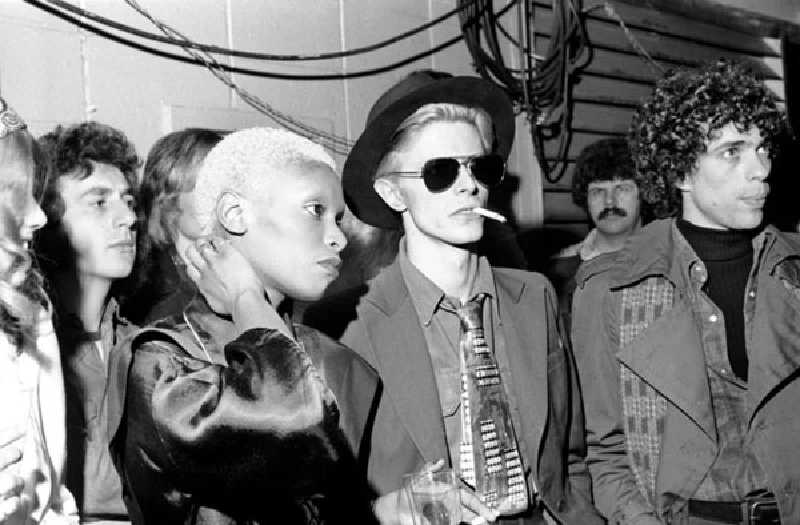
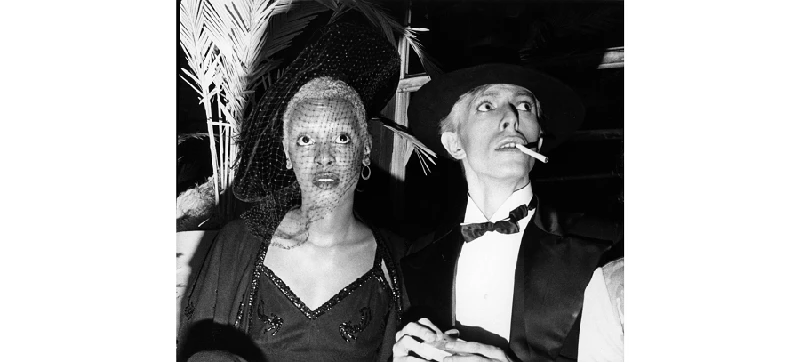
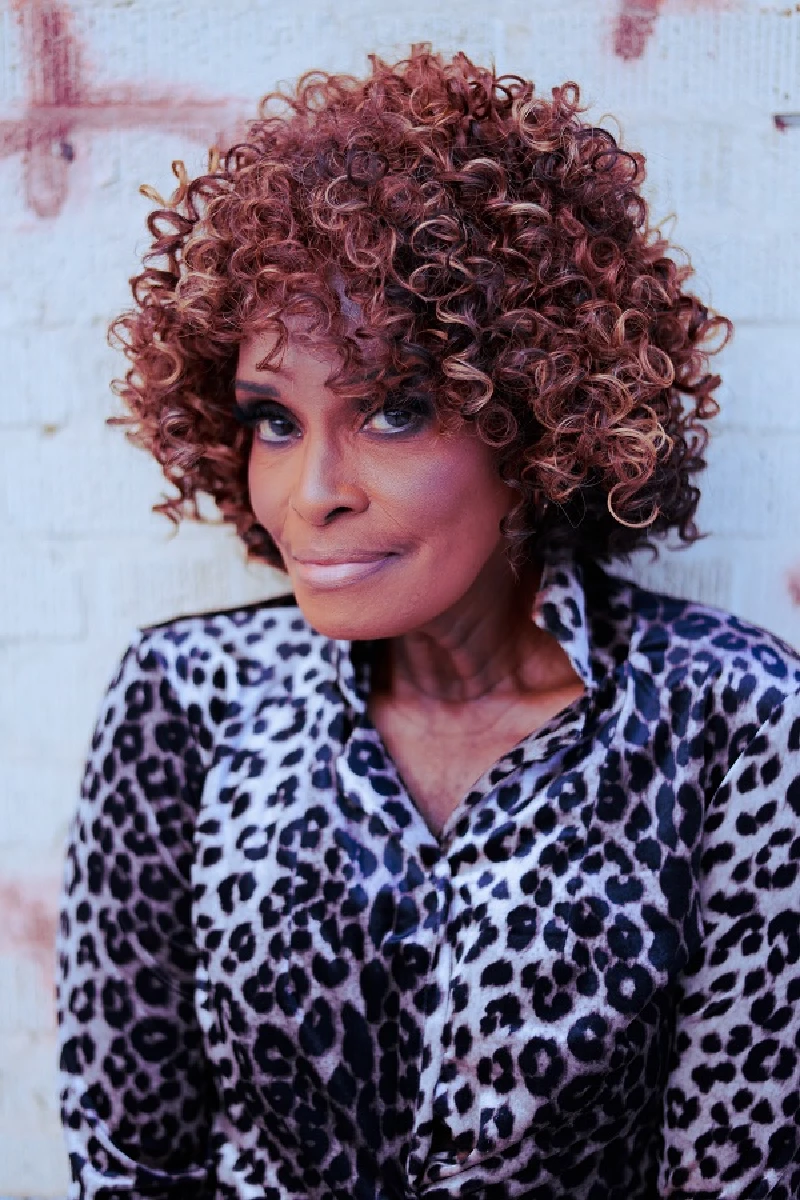
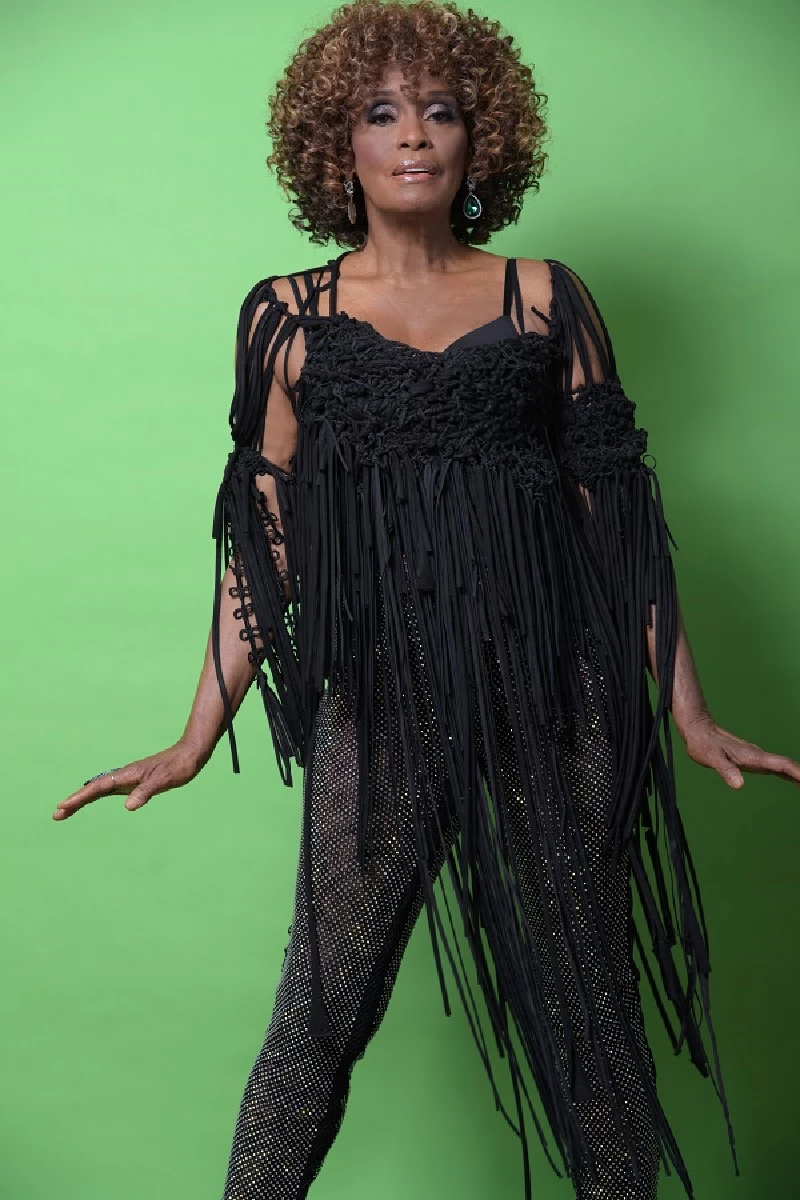
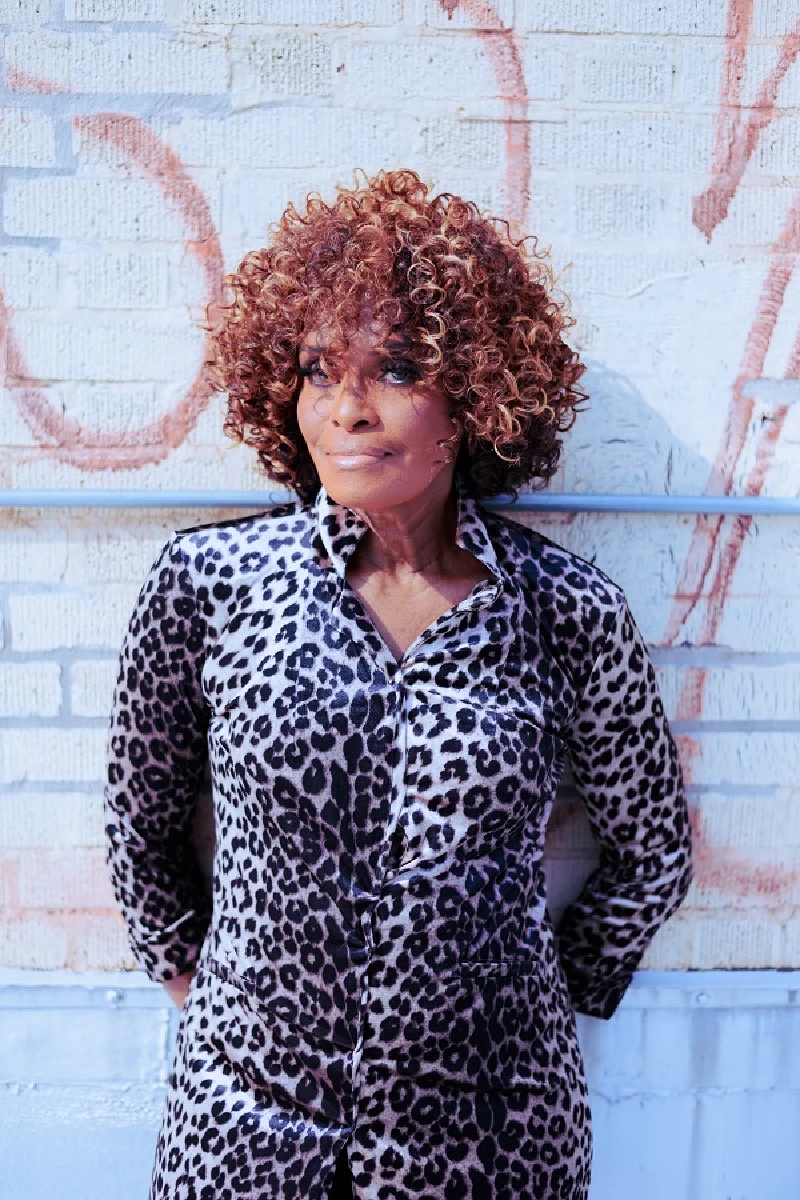
intro
Ava Cherry, who was David Bowie's romantic partner and worked with him on 'Young Americans', speaks to John Clarkson about her forthcoming memoir, 'All That Glitters'.
most viewed articles
current edition
Carl Ewens - David Bowie 1964 to 1982 On Track: Every Album, Every SongArmory Show - Interview with Richard Jobson
John McKay - Interview
Colin Blunstone - Thalia Hall, Chicago, 16/7/2025
Billie Eilish - O2 Arena, London, 10/7/2025
Bathers - Photoscapes 1
Visor Fest - Valencia, Spain, 26/9/2025...27/9/2025
Loft - Interview
Sir Tim Rice - Interview
Robert Forster - Interview
previous editions
Manic Street Preachers - (Gig of a Lifetime) Millennium Stadium, Cardiff, December 1999Heavenly - P.U.N.K. Girl EP
Beautiful South - Ten Songs That Made Me Love...
Oasis - Oasis, Earl's Court, London, 1995
Peter Perrett - In Dreams Begin Responsibilities Interview Part One
Boomtown Rats - Ten Songs That Made Me Love....
Coldplay - Wembley Arena. London, 16/8/2022
Prolapse - Interview
Pixies - Ten Songs That Made Me Love...
Trudie Myerscough-Harris - Interview
most viewed reviews
current edition
Davey Woodward - Mumbo in the JumboSick Man of Europe - The Sick Man of Europe
Lucy Spraggan - Other Sides of the Moon
Amy Macdonald - Is This What You've Been Waiting For?
Phew, Erika Kobayashi,, Dieter Moebius - Radium Girls
Bush - I Beat Loneliness
Suzanne Vega - Flying With Angels
Alice Cooper - The Revenge of Alice Cooper
Blueboy - 2
Cynthia Erivo - I Forgive You
Pennyblackmusic Regular Contributors
Adrian Janes
Amanda J. Window
Andrew Twambley
Anthony Dhanendran
Benjamin Howarth
Cila Warncke
Daniel Cressey
Darren Aston
Dastardly
Dave Goodwin
Denzil Watson
Dominic B. Simpson
Eoghan Lyng
Fiona Hutchings
Harry Sherriff
Helen Tipping
Jamie Rowland
John Clarkson
Julie Cruickshank
Kimberly Bright
Lisa Torem
Maarten Schiethart